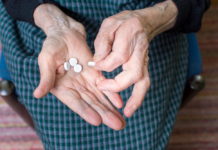shame, experiences of being labeled, discriminated against, and ostracized by their peers,” he said.
Wu stated in the study that preventing long-term behavioral health disorders heavily depend on early detection and intervention and that recognizing the vulnerabilities related to welfare participation may assist in bolstering the efficacy of related treatment and program efforts. He added that, historically, stigma has also been associated with welfare recipients.
“Effects of stigma can lower the youth’s self-esteem, affecting both emotional and psychological well-being,” he concluded.
Summary
Article Name
Children in welfare programs more likely to use drugs into young adulthood
Description
Researchers sought to determine whether childhood welfare participation influenced the likelihood of drug use into young adulthood and discovered that it significantly increased the possibility.
Author
Cesar Gamboa
Publisher Name
Addiction Now















